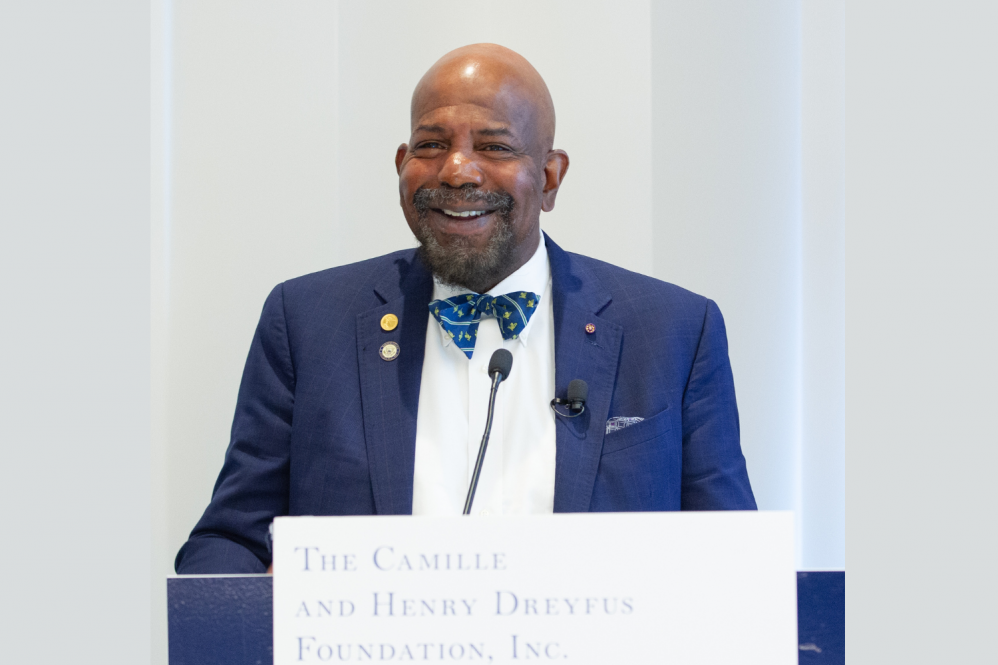UConn Professor Cato T. Laurencin, M.D., Ph.D., was one of the main speakers at the Dreyfus Foundation’s Teacher-Scholar Symposium, titled Research Frontiers in the Chemical Sciences. He gave a lecture on regenerative engineering, a field that he pioneered through his expertise in medicine, biomaterials, and chemistry.
The biennial Teacher-Scholar Symposium held this year on October 18 is by the Camille and Henry Dreyfus Foundation. It highlights emerging areas in the chemical sciences, with many Teacher-Scholars presenting posters of their research while bracketed by talks from a distinguished group of invited speakers who represent different research areas of chemistry, some of whom are Nobel Laureates.
Laurencin is a Professor of Biomedical Engineering, Chemical Engineering, and Materials Science and Engineering at the University of Connecticut and its UConn School of Medicine. He is the chief executive officer of the Cato T. Laurencin Institute for Regenerative Engineering, a cross-campus institute that focuses on the development of regenerative engineering, which is described as converging advanced materials sciences, stem cell sciences, physics, developmental biology, and clinical translation to foster scientific innovation.
Named “one of the most influential and exemplary scientists in history” by Sigma Xi, the international honor society of science and engine, Laurencin was a recipient of the Priestley Medal and the Hoover Medal for his contributions to chemistry. He is the editor-in-chief of Regenerative Engineering and Translational Medicine, a journal published by Springer Nature. He is an elected member of the National Academies of Sciences, the National Academy of Engineering, the National Academy of Medicine, and the National Academy of Inventors, the first surgeon-scientist to ever be elected to all four academies.
Laurencin earned a B.S.E. in Chemical Engineering from Princeton University, an M.D., magna cum laude, from the Harvard Medical School, and a Ph.D. in Biochemical Engineering/Biotechnology from the Massachusetts Institute of Technology.



